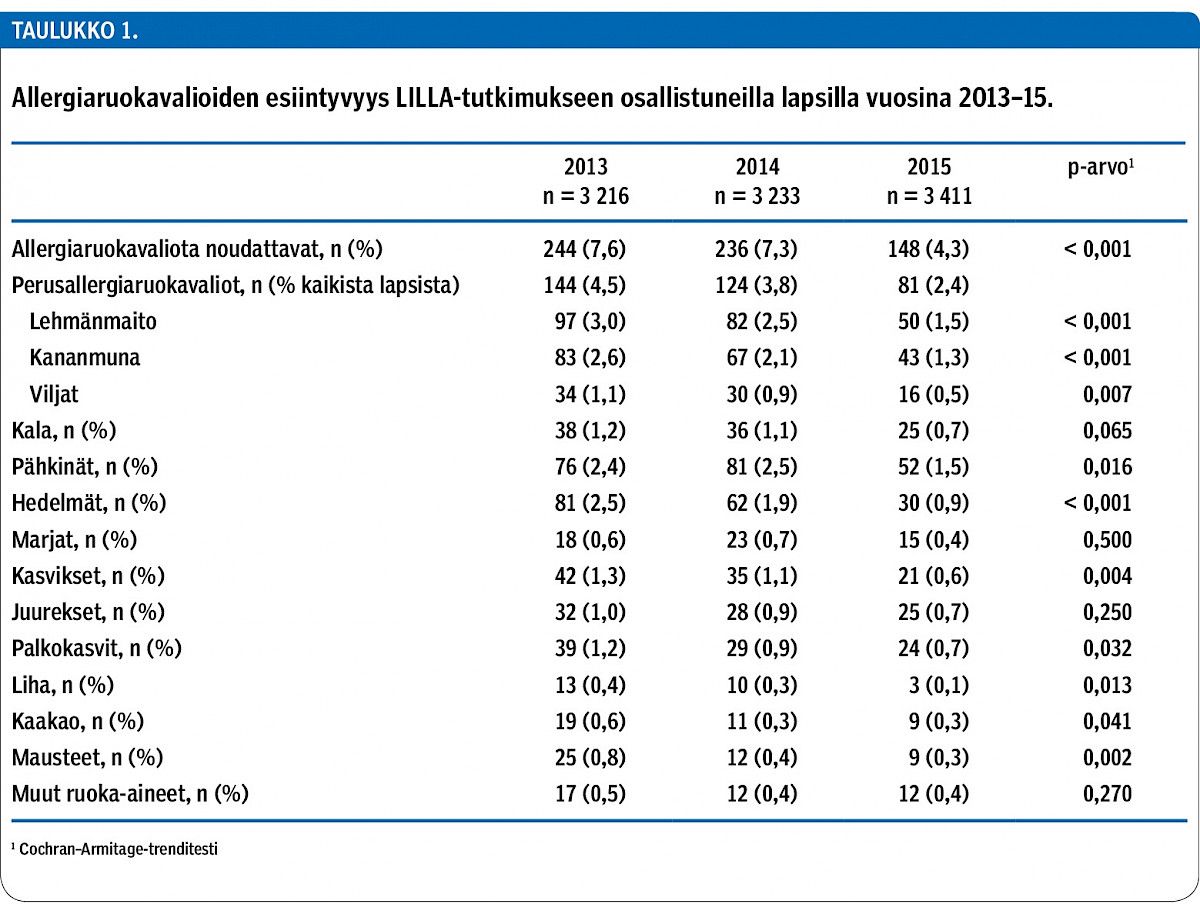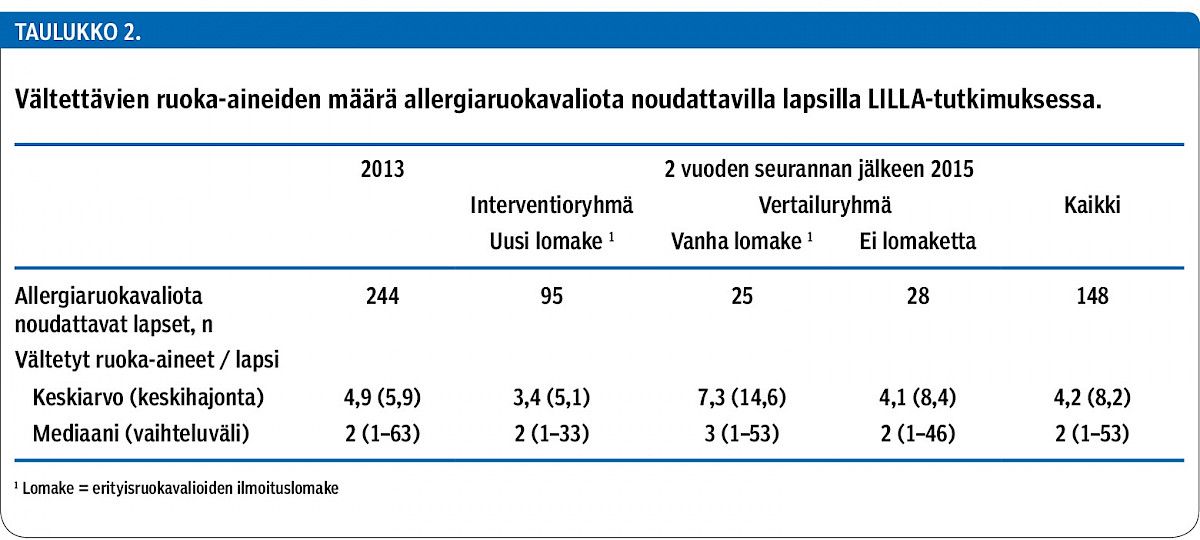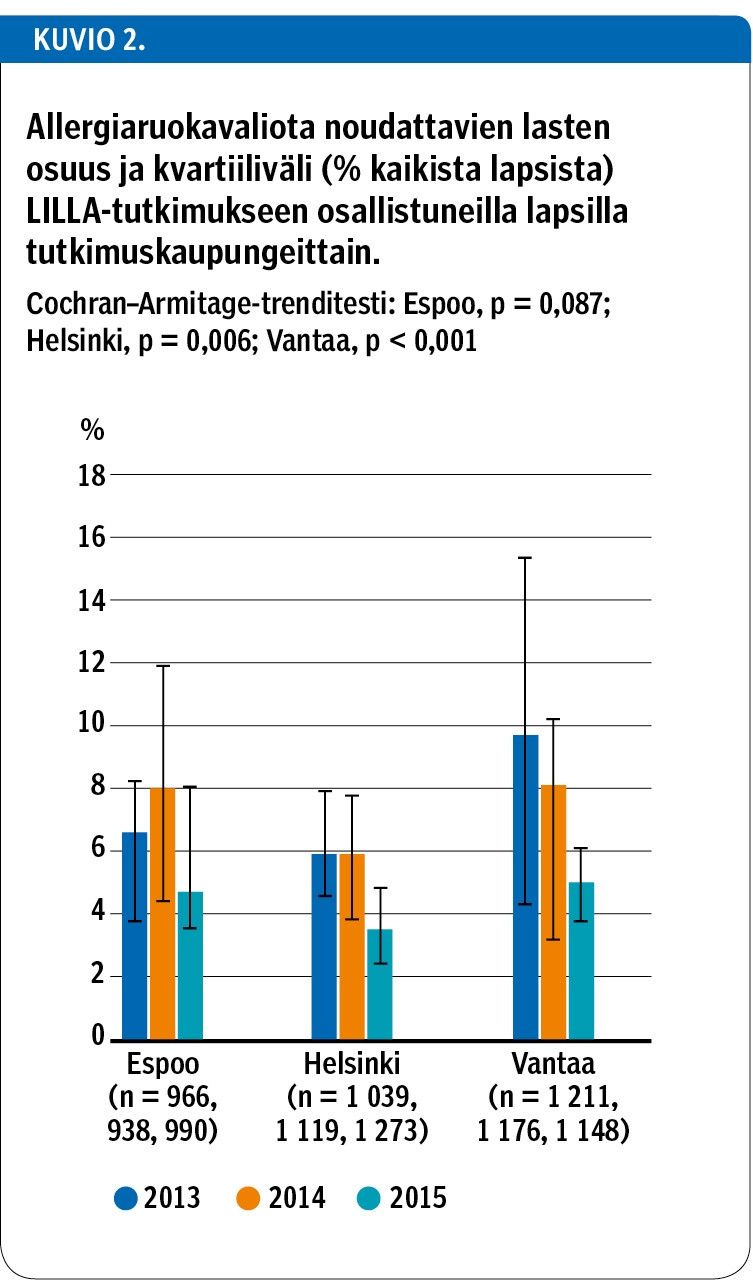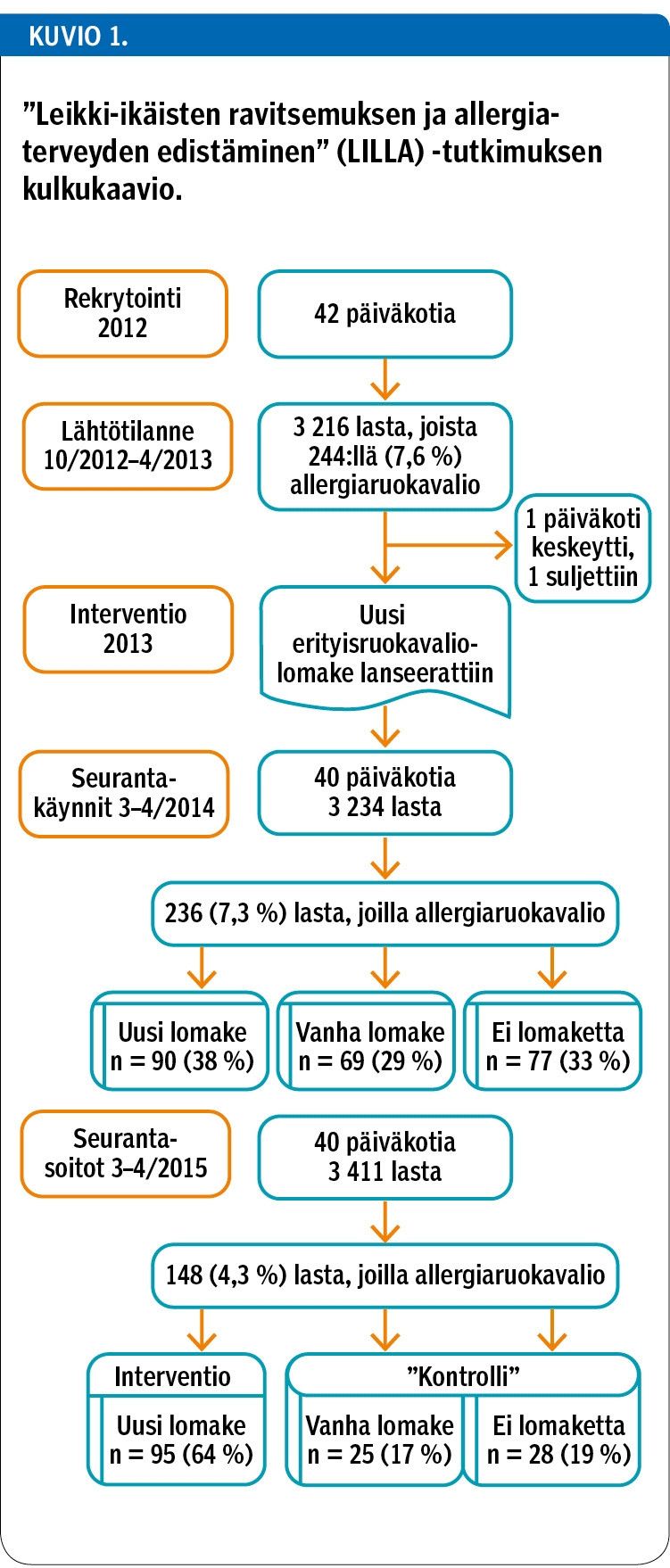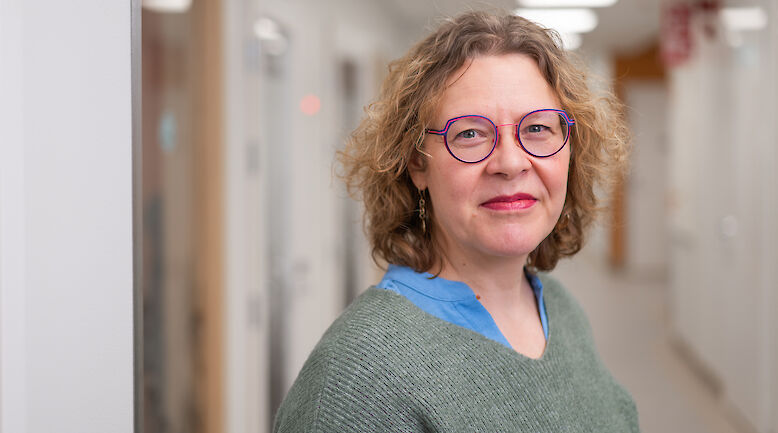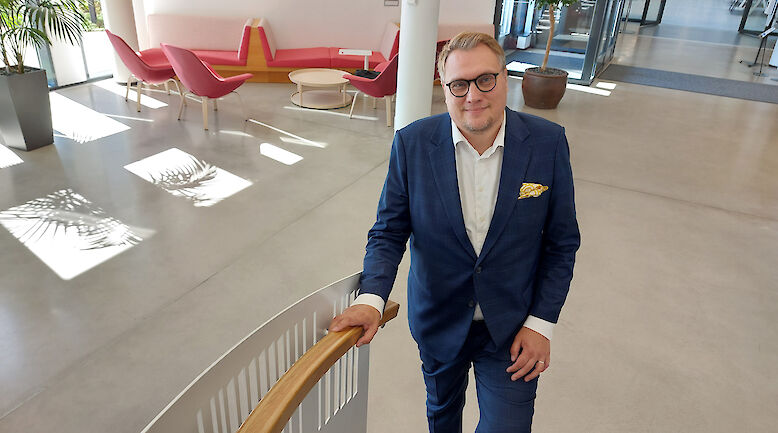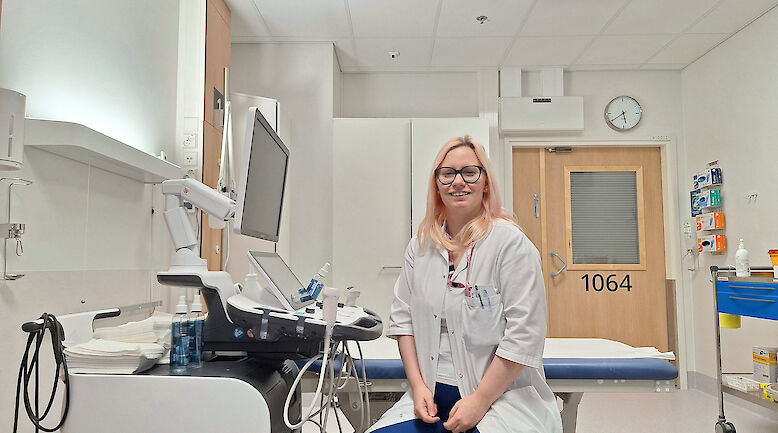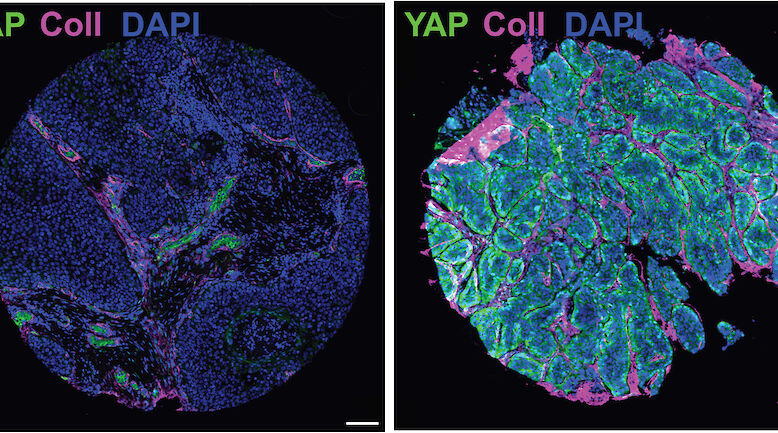Burden of allergy diets in Finnish day care reduced by change in practice
Background
Non-essential allergy diets in children with mild symptoms may harm the development of immunological tolerance and impose a burden on families and day care. We aimed to reduce the high prevalence of allergy diets in day care by reforming the practices for inquiring about need of special diets from parents.
Methods
We developed a new special diet form and an information leaflet based on the new allergy guidelines. The new diet form was implemented in 40 Finnish day care centres in the capital region in 2013-2015. Questionnaires on practices concerning special diets in day care centres and allergy knowledge were completed by the personnel.
Results
After two years, the new special diet form was used by 64% of families with food allergic children, and the prevalence of allergy diets in day care centres decreased by 43% to 4.3% (IQ range 3.05–5.96). A significant decrease was found in the prevalence of all basic (milk, grains, egg) and most other allergy diets (p for trend < 0.01). The new practice was well accepted by day care and kitchen personnel. Lack of updated allergy knowledge was noted among day care personnel.
Conclusions
It was possible to decrease the burden of allergy diets in day care settings by simple pragmatic changes based on current allergy guidelines. Old allergy attitudes persisted among day care personnel, indicating the need for continuing education.
